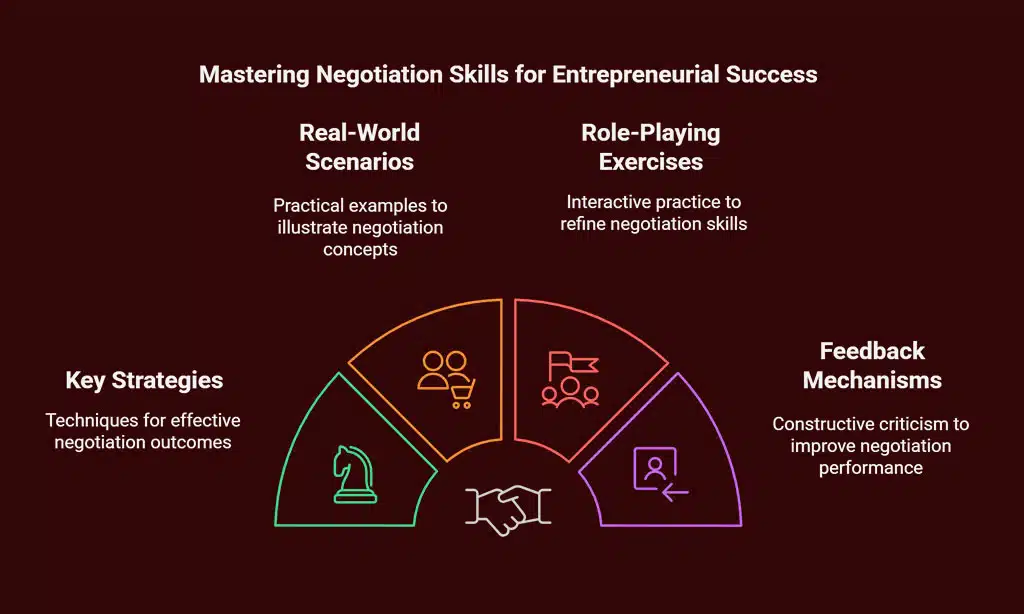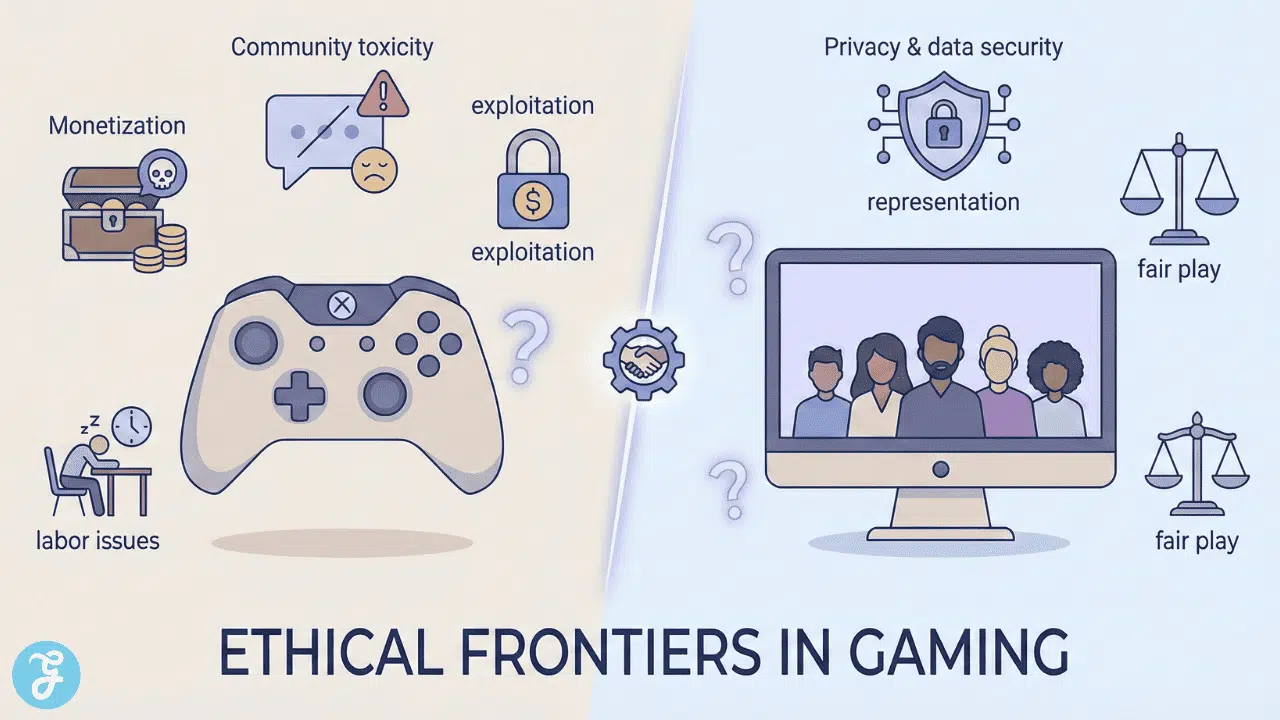Aspiring entrepreneurs often seek knowledge, mentorship, and tools to turn their innovative ideas into successful businesses. Two names stand out when it comes to academic excellence and cutting-edge entrepreneurial education: Harvard University and the Massachusetts Institute of Technology (MIT).
Both institutions offer world-renowned programs that focus on entrepreneurship and innovation. The best online programs to learn entrepreneurship from Harvard and MIT are designed to provide aspiring business leaders with the necessary skills to navigate the complexities of starting and scaling businesses.
In this article, we will explore the top 10 online entrepreneurship programs offered by Harvard and MIT.
These programs not only focus on entrepreneurial theory but also offer practical, hands-on learning experiences. Whether you are looking to develop your business idea or scale an existing startup, these online courses will provide you with the tools, knowledge, and network to succeed.
Why Should You Learn Entrepreneurship from Harvard and MIT?
Before diving into the details of the best online programs to learn entrepreneurship from Harvard and MIT, let’s take a moment to understand why these institutions are the go-to sources for entrepreneurial education.
Harvard’s Reputation in Entrepreneurship Education
Harvard Business School (HBS) is widely regarded as one of the best business schools globally. It has produced countless successful entrepreneurs and leaders who have reshaped industries. Harvard’s entrepreneurial programs provide access to an esteemed faculty, industry experts, and a global network of entrepreneurs.
MIT’s Expertise in Innovation
MIT is known for its emphasis on technology and innovation. With a strong history of entrepreneurial excellence, MIT’s online programs are particularly well-suited for individuals looking to leverage technology and innovation in their entrepreneurial ventures. MIT’s focus on applied learning and real-world problem-solving sets its programs apart.
Criteria for Selecting the Best Entrepreneurship Programs
Before exploring the top programs, it’s important to understand the key features that make a program stand out. These criteria will help you choose the best online entrepreneurship course based on your unique needs and goals.
Key Features of Top Online Entrepreneurship Programs
- Accreditation and Industry Recognition: The credibility of the program is crucial. Both Harvard and MIT’s programs are highly accredited and recognized globally.
- Flexibility: Many entrepreneurs juggle busy schedules. Top programs offer flexible learning options to accommodate full-time professionals.
- Practical Learning: Courses should offer real-world applications and case studies to ensure that the content is not just theoretical.
- Networking Opportunities: Learning from a network of like-minded entrepreneurs and industry leaders is invaluable.
- Instructor Expertise: World-class instructors with experience in entrepreneurship ensure that the content is not only theoretical but practical.
How Harvard and MIT Stand Out
- Harvard focuses on entrepreneurial leadership, offering insights into decision-making and resource allocation.
- MIT emphasizes innovation and technology, providing an understanding of how to leverage modern tools and strategies in entrepreneurial ventures.
The Top 10 Best Online Programs to Learn Entrepreneurship from Harvard and MIT
In this section, we will delve into the top 10 online entrepreneurship programs offered by Harvard and MIT. These programs are carefully designed to cater to various aspects of entrepreneurship, from foundational concepts to advanced strategies.
1. Harvard Business School Online: “Entrepreneurship Essentials”
The Entrepreneurship Essentials program offered by Harvard Business School Online is designed to equip aspiring entrepreneurs with a deep understanding of the foundational principles of entrepreneurship.
The course covers essential topics such as opportunity recognition, business models, value creation, and the importance of entrepreneurial leadership. By the end of the program, participants will gain a solid grasp of what it takes to build a sustainable and scalable business.
This program helps entrepreneurs learn how to identify and evaluate new business opportunities, develop a business model that fits the market, and create a value proposition that resonates with customers.
One of the core takeaways from the course is learning how to evaluate entrepreneurial opportunities using systematic frameworks. Entrepreneurs are introduced to tools like the Business Model Canvas, which helps them visualize and adapt their business ideas. Through case studies, participants also get an opportunity to analyze real-world examples of successful businesses, giving them the insight to apply these lessons in their own ventures.
Who Should Take This Course?
This course is ideal for individuals who have a business idea or are considering launching their own startup. It’s designed for people with little to no experience in entrepreneurship, as well as those who want to solidify their foundational knowledge.
Entrepreneurs in the early stages of their careers will benefit greatly, as they will learn how to lay the groundwork for success. Business professionals looking to switch to an entrepreneurial career or corporate employees wanting to start a side business will also find value in this course.
2. MIT Sloan School of Management: “Entrepreneurship and Innovation”
The Entrepreneurship and Innovation program from MIT Sloan School of Management is perfect for individuals looking to drive innovative practices within their entrepreneurial ventures.
This course focuses on the mindset required to succeed in entrepreneurship, emphasizing the application of innovation to business challenges. It equips participants with the skills to think creatively and apply new technologies, strategies, and business models to their ventures.
A key highlight of this course is its focus on creating scalable and sustainable business models using disruptive innovation. Entrepreneurs will learn how to assess and manage risk, craft compelling pitches for investors, and build teams capable of driving innovative change.
Case studies and real-world examples from leading entrepreneurs and businesses around the world illustrate the value of strategic innovation in a competitive market.
Ideal Participants:
This program is designed for entrepreneurs who have a business idea and are looking to scale it using innovation. It’s also suited for individuals looking to introduce new technologies and approaches into their startup. If you are passionate about creating disruptive innovations that transform industries, this course will provide you with the tools to turn those ideas into reality.
3. Harvard Business School Online: “CORe (Credential of Readiness)”
This free course from MIT’s OpenCourseWare provides an in-depth understanding of the entrepreneurial process from start to finish. From idea conception to startup creation, it covers crucial topics such as market research, fundraising, prototyping, and scaling a business.
The course is designed to be highly practical, providing aspiring entrepreneurs with a roadmap for launching their own business.
One of the key learning outcomes of this course is the ability to develop a business plan and pitch it effectively to potential investors. The course encourages students to focus on creating an MVP (Minimum Viable Product), testing assumptions, and iterating based on feedback. It also teaches practical strategies for raising capital and dealing with the challenges that arise when scaling a startup.
Target Audience:
Ideal for early-stage entrepreneurs, this course provides guidance to individuals who are in the idea phase or have just started their business. It’s especially valuable for those who want to move beyond the theory and dive into the hands-on aspects of building a business. Whether you’re still exploring ideas or have already taken the first steps in launching a startup, this course will provide you with the tools to move forward with confidence.
4. MIT OpenCourseWare: “The Entrepreneurial Process”
This free course from MIT’s OpenCourseWare provides an in-depth understanding of the entrepreneurial process from start to finish. From idea conception to startup creation, it covers crucial topics such as market research, fundraising, prototyping, and scaling a business.
The course is designed to be highly practical, providing aspiring entrepreneurs with a roadmap for launching their own business.
One of the key learning outcomes of this course is the ability to develop a business plan and pitch it effectively to potential investors. The course encourages students to focus on creating an MVP (Minimum Viable Product), testing assumptions, and iterating based on feedback. It also teaches practical strategies for raising capital and dealing with the challenges that arise when scaling a startup.
Target Audience:
Ideal for early-stage entrepreneurs, this course provides guidance to individuals who are in the idea phase or have just started their business. It’s especially valuable for those who want to move beyond the theory and dive into the hands-on aspects of building a business. Whether you’re still exploring ideas or have already taken the first steps in launching a startup, this course will provide you with the tools to move forward with confidence.
5. Harvard Business School Online: “Disruptive Strategy”
The Disruptive Strategy program from Harvard Business School Online teaches entrepreneurs how to create and implement strategies that challenge traditional business models. This course is centered around the concept of disruption, where companies are taught how to rethink the rules of their industries and transform markets.
By focusing on innovation-driven strategies, this program gives entrepreneurs the ability to identify gaps in the market and build businesses that capitalize on these opportunities.
The course also covers the importance of competitive strategy, examining how to analyze competitors and predict future market trends. It teaches entrepreneurs how to design business strategies that are both bold and sustainable, using disruption as a growth tool rather than as a risk.
Benefits for Aspiring Entrepreneurs:
Entrepreneurs will learn to recognize opportunities to disrupt industries and transform markets by innovating business practices. The program offers a deep dive into strategic decision-making, including how to manage disruption and sustain long-term business growth. Participants will learn from successful entrepreneurs and business leaders who have implemented disruptive strategies to revolutionize their industries.
6. MIT Sloan School of Management: “Business Innovation and Strategy”
MIT’s Business Innovation and Strategy program is tailored for entrepreneurs who want to merge traditional business strategies with cutting-edge innovation techniques.
The program covers key areas like business innovation, growth strategies, competitive advantage, and the role of disruptive technologies in business. Entrepreneurs will explore how to leverage strategic frameworks to evaluate opportunities, manage risks, and make decisions that ensure the long-term sustainability of their business.
One of the main concepts in this course is the idea of business model innovation, where participants learn how to challenge conventional business models and create new, more efficient ways of doing business.
Entrepreneurs will gain insights into using data-driven decision-making and innovation management techniques to stay competitive in an ever-changing market. By analyzing real-world case studies, students will see firsthand how businesses have implemented innovative strategies and the results of those decisions.
Program Duration and Flexibility:
This course is structured for professionals and entrepreneurs looking for a strategic, in-depth analysis of innovation and business models. It is flexible enough to fit into the busy schedules of entrepreneurs, as it combines online lectures with self-paced modules. Entrepreneurs can expect to complete the program within a few months, depending on their available time commitment.
7. Harvard Business School Online: “Negotiation Mastery”
In the world of entrepreneurship, negotiations are a critical part of business. Whether you’re securing funding, forming partnerships, or managing vendor agreements, mastering negotiation techniques can make or break a deal.
Harvard’s Negotiation Mastery course is a must-have for entrepreneurs looking to hone their negotiation skills.
This course offers insights into key negotiation strategies and approaches, teaching participants how to navigate tough negotiations, build rapport, and create win-win situations. Entrepreneurs will learn how to assess the interests of all parties involved, build strong proposals, and influence decisions, which are all critical skills when managing a growing business.
Course Features and Format:
The course utilizes real-world scenarios and case studies to demonstrate the art of negotiation. By taking part in role-playing exercises, participants can practice the techniques they’ve learned and receive feedback on how to improve. This practical, hands-on approach ensures that participants are ready to tackle negotiations with confidence once the course is complete.
8. MIT OpenCourseWare: “Technology Entrepreneurship”
As the business landscape becomes increasingly reliant on technology, Technology Entrepreneurship has emerged as one of the most sought-after skills for modern entrepreneurs.
MIT’s Technology Entrepreneurship course covers the intersection of technology and entrepreneurship, providing entrepreneurs with the skills to turn technological innovations into viable business models.
Key topics covered include technology commercialization, intellectual property management, and creating a startup around technological innovations. Entrepreneurs will learn how to bring an idea from the concept phase to market, develop a solid business plan, and find investors who are willing to fund high-tech startups.
This course also addresses issues like identifying market needs, scaling a tech-based business, and how to protect intellectual property in a competitive environment.
Ideal Participants and Course Structure:
This course is perfect for entrepreneurs with a background in technology or those looking to launch tech startups. If you are interested in creating new products or services based on emerging technologies, this course will provide you with the tools and knowledge you need to succeed. The course structure includes video lectures, practical assignments, and group projects that provide a hands-on learning experience.
9. Harvard Kennedy School: “Social Entrepreneurship”
Harvard’s Social Entrepreneurship program is uniquely designed for entrepreneurs focused on solving social, environmental, or community-based issues. This course goes beyond business success and teaches how to create social impact through entrepreneurial endeavors.
Entrepreneurs will learn how to blend business principles with social responsibility to create organizations that can scale while addressing critical societal needs.
The course covers fundraising for social enterprises, the development of sustainable business models, and how to build partnerships with public and private sectors.
Students will explore real-world examples of successful social entrepreneurs, gaining insights into the unique challenges faced by social ventures and how to overcome them.
Key Takeaways from the Program:
- Learn how to design business models that generate both social impact and financial returns.
- Understand how to measure social value alongside financial performance.
- Gain insights into the unique funding models for social enterprises and how to attract impact investors.
Ideal Participants:
This program is ideal for entrepreneurs passionate about addressing social issues through their business ventures. It’s a great choice for those interested in starting a nonprofit or a for-profit social enterprise that addresses pressing global challenges.
10. MIT Sloan School of Management: “Entrepreneurship in Emerging Markets”
The Entrepreneurship in Emerging Markets program at MIT Sloan focuses on understanding the unique opportunities and challenges that entrepreneurs face in developing economies. As global markets continue to shift, more and more entrepreneurs are looking to expand into emerging markets, where there are substantial opportunities for growth.
This course teaches participants how to navigate these markets, develop scalable business models, and adapt their approach to fit the specific needs of these regions.
Key areas covered in the course include market entry strategies, local market analysis, leveraging mobile technologies, and building networks in emerging economies. Entrepreneurs will gain a deep understanding of how to succeed in regions with complex regulatory environments, limited resources, and high competition.
Through case studies and practical lessons, the course provides entrepreneurs with actionable insights for launching successful businesses in emerging markets.
Who Will Benefit the Most from This Course:
This program is highly beneficial for entrepreneurs seeking to expand their business internationally, particularly in emerging markets like Africa, Asia, and Latin America. Whether you are planning to start a business in a developing economy or scale an existing startup, this course will provide the knowledge to make strategic decisions and drive success in these fast-growing regions.
Comparison of Harvard and MIT’s Online Entrepreneurship Programs
- Harvard takes a more leadership-oriented approach, focusing on business strategy, negotiation, and leadership skills.
- MIT places greater emphasis on technological innovation, market research, and scalable business models in emerging markets.
Cost Comparison and Financial Aid Options
Both Harvard and MIT offer varying tuition prices depending on the program. However, they also provide financial aid options for qualified individuals. You may also explore corporate sponsorships and scholarships to ease the cost burden.
Alumni Success Stories and Real-World Impact
Harvard and MIT alumni have gone on to launch successful startups, raise millions in funding, and lead some of the most innovative companies worldwide. Enrolling in these programs gives you access to a powerful network that can open doors and foster entrepreneurial success.
How to Choose the Best Online Program for You
When selecting an online entrepreneurship program, it’s important to assess your goals, your current knowledge base, and the time you can commit. Here are some questions to consider:
- What are your specific entrepreneurial goals? Are you looking to scale an existing business, or are you starting from scratch?
- How much time can you dedicate to your studies? Choose a program that fits your schedule and lifestyle.
- Do you prefer a leadership-focused program or one that emphasizes technology and innovation?
Takeaways
The best online programs to learn entrepreneurship from Harvard and MIT offer unparalleled opportunities for aspiring entrepreneurs to gain critical skills, insights, and networks.
Whether you’re looking to master business strategy, navigate technological innovation, or launch a socially-conscious enterprise, these courses provide comprehensive, world-class education.
The entrepreneurial journey is challenging, but with the right education, tools, and mindset, success is within reach. By enrolling in one of these programs, you are taking the first step towards turning your entrepreneurial dreams into reality.
Additional Resources for Aspiring Entrepreneurs
To supplement your learning, consider exploring these additional resources:
- Books: “The Lean Startup” by Eric Ries, “Zero to One” by Peter Thiel
- Podcasts: “How I Built This” by NPR, “The Tim Ferriss Show”
- Entrepreneurial Communities: Join LinkedIn groups, startup incubators, and local meetups to connect with fellow entrepreneurs.
By choosing the best online programs to learn entrepreneurship from Harvard and MIT, you are positioning yourself to thrive in today’s competitive business world.





































